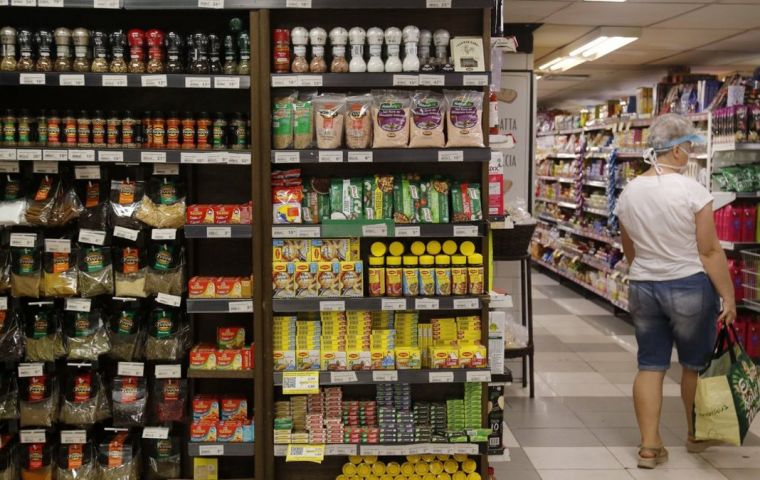MercoPress. South Atlantic News Agency
Food and transport costs lifting annual inflation in Brazil to the central bank year target
 The IPCA consumer price index rose 0.86% in October from 0.64% the month before, government statistics agency IBGE said
The IPCA consumer price index rose 0.86% in October from 0.64% the month before, government statistics agency IBGE said Brazilian inflation in October rose to its highest level for that month since 2002, figures showed on Friday, driven by rising food and transport costs and lifting annual inflation to within sight of the central bank’s year-end target.
Central bank officials say the spike is “temporary” and that long-term inflation expectations and baseline forecasts remain “well-anchored”, but more figures like these may force them to rethink.
The IPCA consumer price index rose 0.86% in October from 0.64% the month before, government statistics agency IBGE said. Prices rose 3.92% in the 12 months through October, the highest since February and also very close to the central bank’s official 2020 goal of 4.00%.
According to IBGE, the biggest drivers in October were a 1.9% rise in food and drink prices and a 1.2% increase in transport prices on the month. Between them, they accounted for 0.63 percentage points of inflation.
The 1.9% rise in food prices was slightly lower than the 2.3% increase the previous month. Still, IBGE research manager Pedro Kislanov said the “sustained” rise was “by far the biggest impact on the month’s index”.
Within the transport segment, air fares jumped almost 40% on the month, IBGE said.
Of the nine sectors covered, eight showed inflation and one showed prices falling on the month, IBGE said, adding that the accumulated rate of inflation in the first 10 months of the year was 2.22%.




Top Comments
Disclaimer & comment rulesCommenting for this story is now closed.
If you have a Facebook account, become a fan and comment on our Facebook Page!